
To celebrate the centennial of the Nineteenth Amendment and Women’s Equality Day on August 26, we’re offering a 50% discount on all women’s suffrage books! Use Promo Code 100vote on any of the titles listed below to receive the discount. Sale ends August 27.
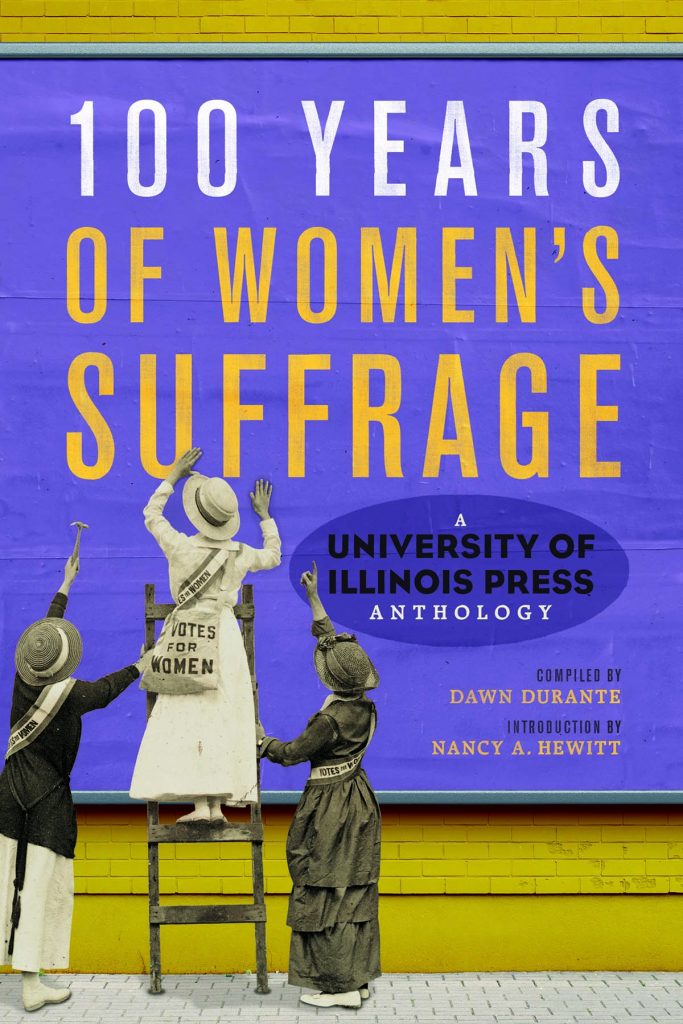
100 Years of Women’s Suffrage: A University of Illinois Press Anthology
Compiled by Dawn Durante and Introduction by Nancy A. Hewitt
100 Years of Women’s Suffrage commemorates the centennial of the Nineteenth Amendment by bringing together essential scholarship on the women’s suffrage movement and women’s voting previously published by the University of Illinois Press. With an original introduction by Nancy A. Hewitt, the volume illuminates the lives and work of key figures while uncovering the endeavors of all women to gain, and use, the vote.
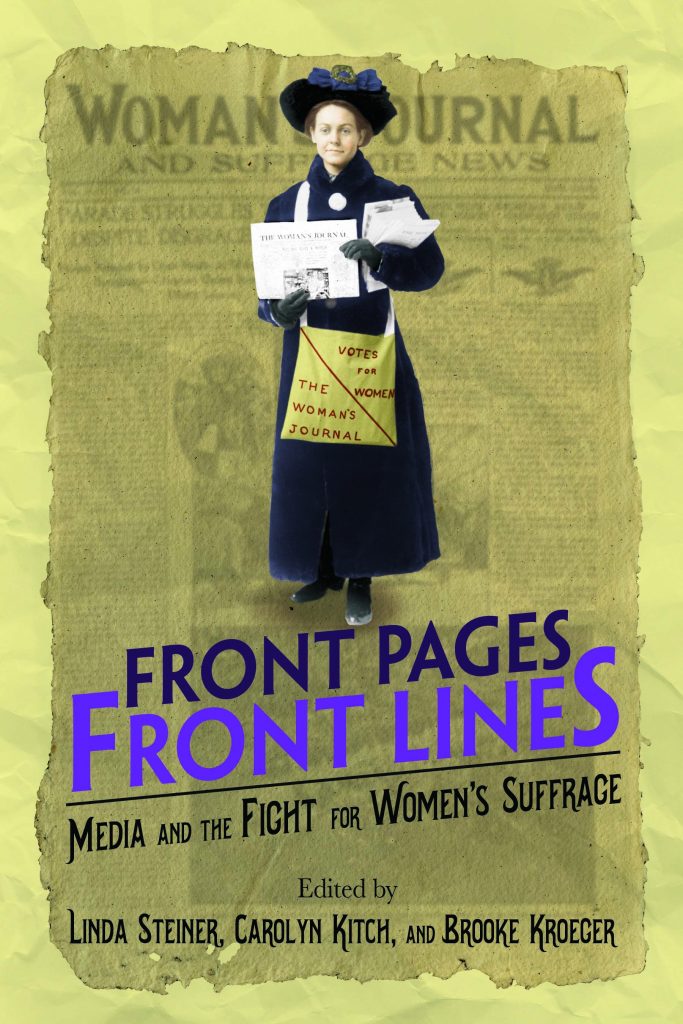
Front Pages, Front Lines: Media and the Fight for Women’s Suffrage
Edited by Linda Steiner, Carolyn Kitch, and Brooke Kroeger
Front Pages, Front Lines offers new research on media issues related to women’s suffrage, incorporating innovative approaches to social movements and counter-movements, media theory, memory studies, and historiography. The collection includes overlooked topics, such as the participation of African American and religious media, coverage of black suffragists, suffragist and anti-suffrage rhetorical strategies, the role of social and media elites, and the impact of white masculinity on press coverage.
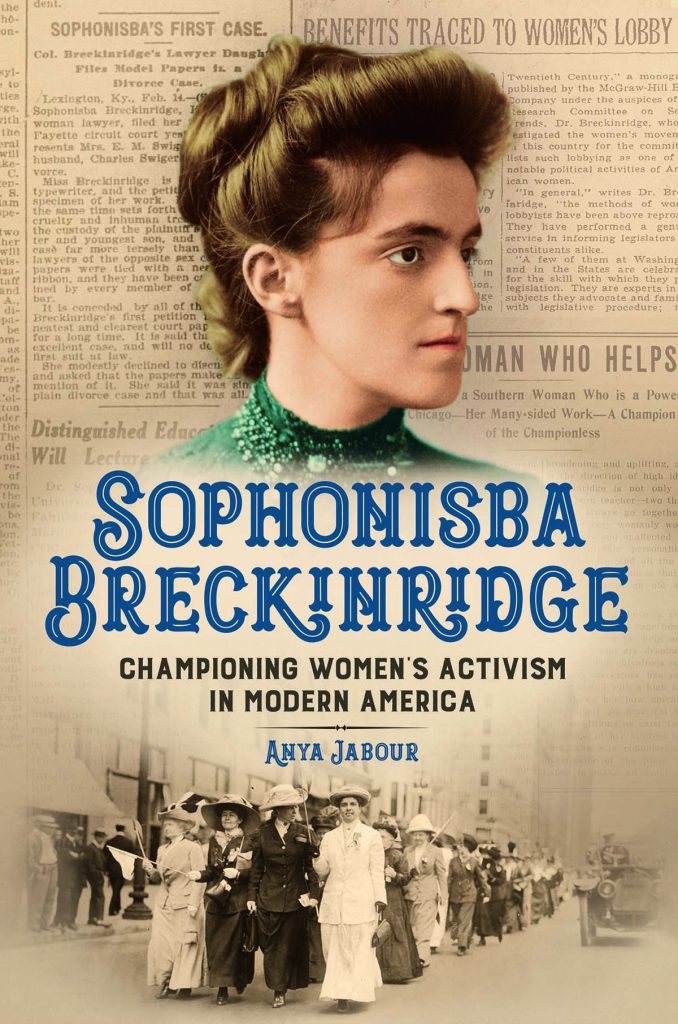
Sophonisba Breckinridge: Championing Women’s Activism in Modern America
by Anya Jabour
Sophonisba Breckinridge’s remarkable career stretched from the Civil War to the Cold War. She took part in virtually every reform campaign of the Progressive and New Deal eras and became a nationally and internationally renowned figure. During the long fight for equal suffrage, she spearheaded the successful campaign for woman suffrage in Illinois and served as an officer of the National American Woman Suffrage Association.
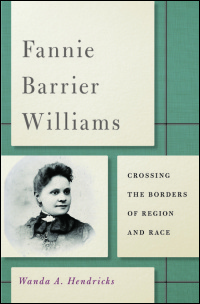
Fannie Barrier Williams: Crossing The Borders of Region and Race
by Wanda A. Hendricks
In this first biography of Fannie Barrier Williams, Wanda A. Hendricks focuses on the critical role geography and social position played in Williams’s life, illustrating how the reform activism of Williams and other black women was bound up with place and space. By highlighting how Williams experienced a set of freedoms in the North that were not imaginable in the South, this clearly written, widely accessible biography expands how we understand intellectual possibilities, economic success, and social mobility in post-Reconstruction America.
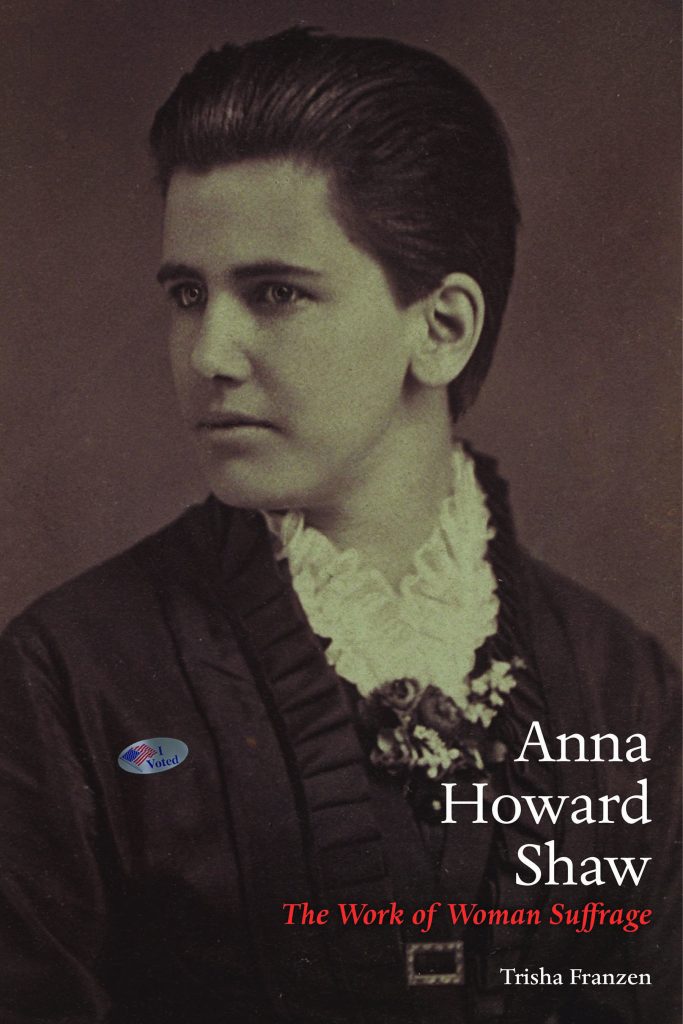
Anna Howard Shaw: The Work of Woman’s Suffrage
by Trisha Franzen
Acknowledged by her contemporaries as the most outstanding woman suffrage orator of her time, Anna Howard Shaw (1847-1919) has nonetheless received minimal attention from historians. Trisha Franzen rectifies that oversight with this first scholarly biography of Shaw. Challenging traditional gender boundaries throughout her life, she put herself through college, worked as an ordained minister and a doctor, and built a tightly-knit family with her secretary and longtime companion Lucy E. Anthony.

For Freedom’s Sake: The Life of Fannie Lou Hamer
by Chana Kai Lee
In this biography, Chana Kai Lee documents Fannie Lou Hamer’s lifelong crusade to empower the poor through collective action, her rise to national prominence as a civil rights activist, and the personal costs of her ongoing struggle to win a political voice and economic self-sufficiency for blacks in the segregated South. Lee traces Hamer’s early work as a field secretary for the Student Nonviolent Coordinating Committee in rural Mississippi, documenting the partial blindness she suffered after being arrested and beaten by local officials for leading a group of blacks to register for the vote.

Edited and with an Introduction by Mari Jo Buhle and Paul Buhle
In their Concise History of Woman Suffrage, Mari Jo Buhle and Paul Buhle have revitalized this classic text by carefully selecting from among the original six-volume History of Women Suffrage best material. The eighty-two chosen documents, now including interpretative introductory material by the editors, give researchers easy access to material that the original work’s arrangement often caused readers to ignore or to overlook.
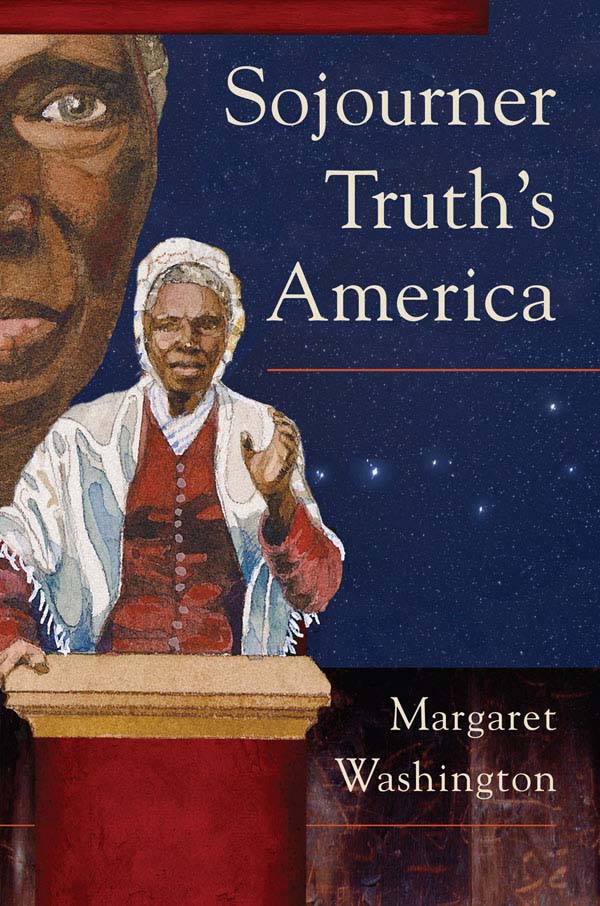
by Margaret Washington
This fascinating biography tells the story of nineteenth-century America through the life of one of its most charismatic and influential characters: Sojourner Truth. Washington’s biography of this remarkable figure considers many facets of Sojourner Truth’s life to explain how she became one of the greatest activists in American history. Truth’s awakening during America’s progressive surge then propelled her ascendancy as a rousing preacher and political orator despite her inability to read and write. She was an active and vocal proponent of women’s rights and suffrage.
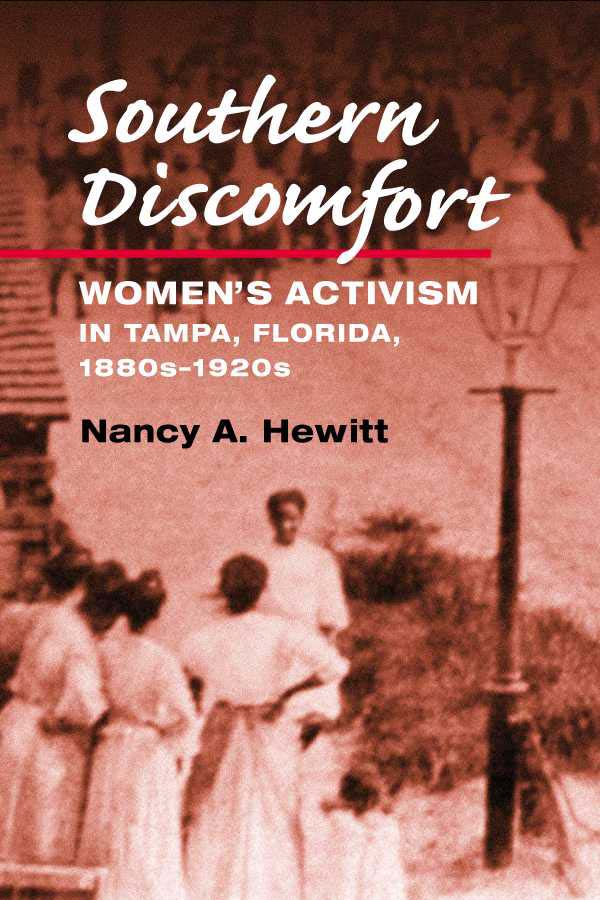
Southern Discomfort: Women’s Activism in Tampa, Florida, 1880s-1920s
by Nancy A. Hewitt
The Cigar City of Tampa, Florida, never fit comfortably into the biracial mold of the New South. In Southern Discomfort, highly regarded historian Nancy A. Hewitt explores the interactions among distinct groups of women—native-born white, African American, Cuban and Italian immigrant women—that shaped women’s activism in this vibrant, multiethnic city. Southern Discomfort emphasizes the process by which women forged and reformulated their activist identities.

Beyond Respectability: The Intellectual Thought of Race Women
by Brittney C. Cooper
Beyond Respectability charts the development of African American women as public intellectuals and the evolution of their thought from the end of the 1800s through the Black Power era of the 1970s. Eschewing the Great Race Man paradigm so prominent in contemporary discourse, Brittney C. Cooper looks at the far-reaching intellectual achievements of female thinkers and activists like Anna Julia Cooper, Mary Church Terrell, Fannie Barrier Williams, Pauli Murray, and Toni Cade Bambara. As Cooper shows, their body of work critically reshaped our understandings of race and gender discourse.

by James Weber Linn
Jane Addams is most widely remembered as a founder of Hull House, but her social vision extended far beyond Chicago’s Halsted Street. The first real adventurer in the unexplored territory of social amelioration in America, Addams worked tirelessly on behalf of a multitude of social causes, including industrial and educational reform, drug laws, sanitation, disaster relief, and food purity. In 1931 she won the Nobel Prize for Peace, a tribute to the decades of energy and eloquence she devoted to eradicating intolerance and elevating human life to a more humane standard. She was also active in the women’s suffrage movement as an officer in the National American Women’s Suffrage Association.
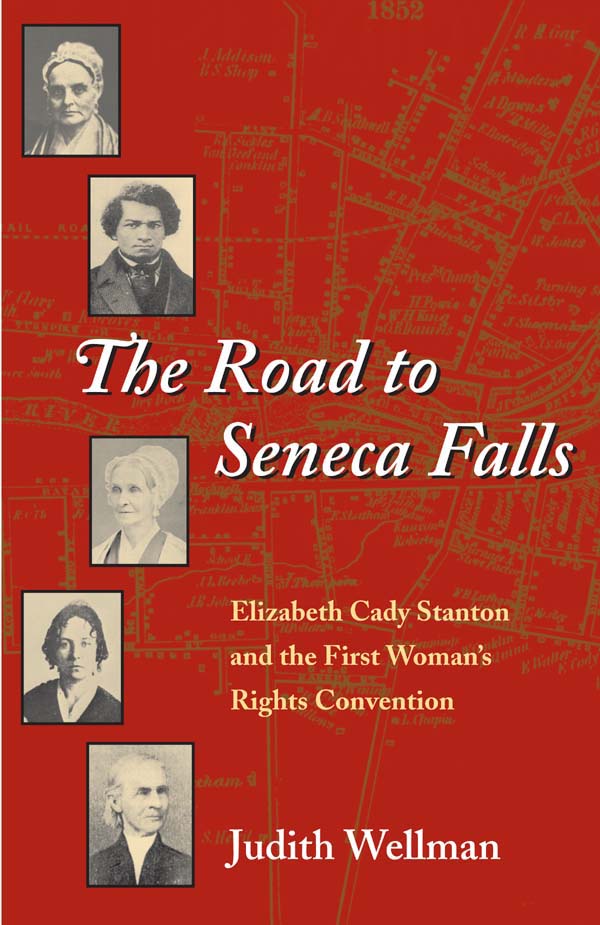
The Road To Seneca Falls: Elizabeth Cady Stanton and the First Woman’s Rights Convention
by Judith Wellman
Rather than working heavy-handedly downward from their official “Declaration of Sentiments,” Wellman works upward from richly detailed documentary evidence to construct a complex tapestry of causes that lay behind the Seneca Falls convention, bringing the struggle to life. Wellman shows that the anti-slavery movement, radical Quakers, and the campaign for legal reform under a common cause converged not only in Seneca Falls, but also in the life of women’s rights pioneer Elizabeth Cady Stanton.
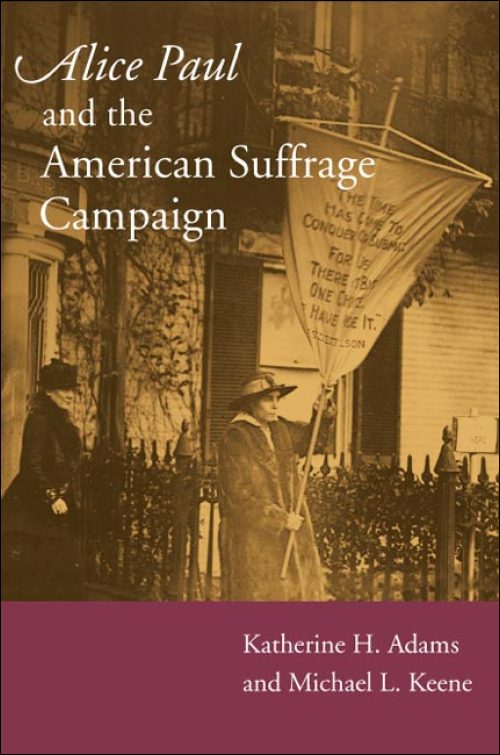
Alice Paul and the American Suffrage Campaign
by Katherine H. Adams & Michael L. Keene
Alice Paul and the American Suffrage Campaign narrates the remarkable story of the first person to picket the White House, attempt a national political boycott, burn the president in effigy, and lead a successful campaign of nonviolence. This groundbreaking study fills the gap in the historical record that past historical records leave out about Paul’s contributions to women’s suffrage. Paul’s controversial approach, the authors assert, was essential in changing American attitudes toward suffrage.
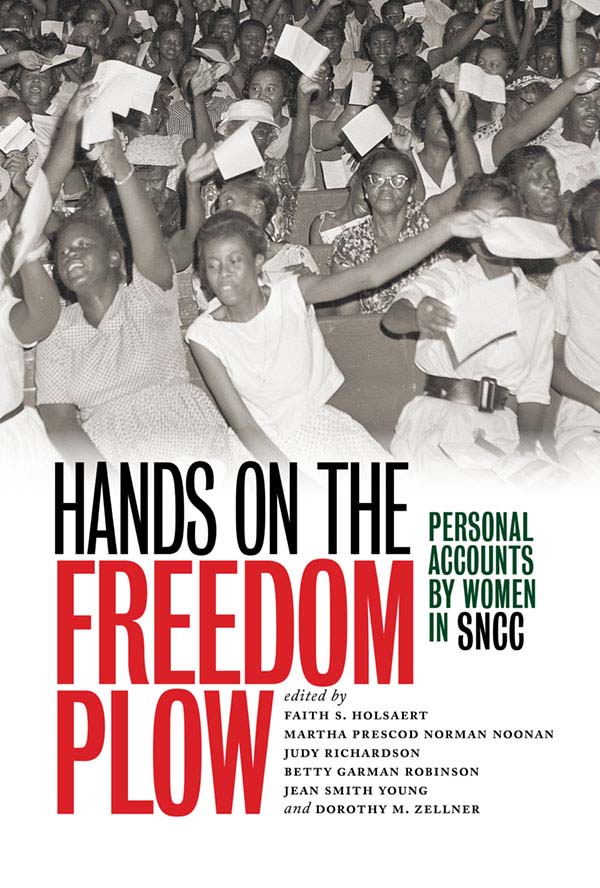
Hands on the Freedom Plow: Personal Accounts by Women in SNCC
edited by Faith S. Holsaert, Martha Prescod Normal Noonan, Judy Richardson, Betty Garman Robinson, Jean Smith Young, and Dorothy M. Zellner
In Hands on the Freedom Plow, fifty-two women in the Student Nonviolent Coordinating Committee ( SNCC ) acquired new skills, experienced personal growth, sustained one another, and even had fun in the midst of serious struggle. These intense stories on the front lines of the Civil Rights Movement depict women, many very young, dealing with extreme fear and finding the remarkable strength to survive.
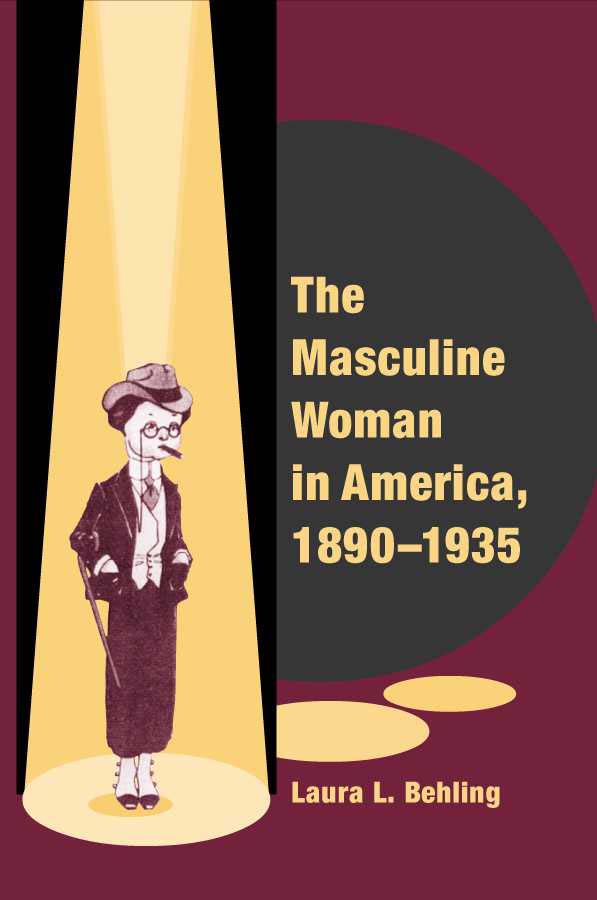
The Masculine Woman in America, 1890-1935
by Laura L. Behling
The Masculine Woman in America, 1890-1935 demonstrates that the women’s suffrage movement did not so much suggest alternatives to women’s gender and sexual behavior as it offered men and women afraid of perceived changes a tangible movement on which to blame their fears. The suffrage movement’s efforts to secure social and political independence for women were translated by a fearful society into a movement of unnatural “masculinized” women and dangerous “female sexual inverts.”

Lucretia Mott Speaks: The Essential Speeches and Sermons
by Luecretia Mott; Edited by Christopher Densmore, Carol Faulkner, Nancy Hewitt, and Beverly Wilson Palmer
Committed abolitionist, controversial Quaker minister, tireless pacifist, fiery crusader for women’s rights—Lucretia Mott was one of the great reformers in America history. Drawing on widely scattered archives, newspaper accounts, and other sources, Lucretia Mott Speaks unearths the essential speeches and remarks from Mott’s remarkable career.

The Selected Letters of Florence Kelley, 1869-1931
Edited by Kathryn Kish Sklar & Beverly Wilson Palmer
As head of the National Consumers’ League, Florence Kelley led campaigns that reshaped the conditions under which goods were produced in the United States. An ally of W.E.B. Du Bois, she was a founding member of the National Association for the Advancement of Colored People and served on its board for twenty years. She also joined the fight for women’s rights as the Vice President of the National American Woman Suffrage Association. Rendered in Kelley’s vivid, often combative prose, these letters provide an intimate view into the personal life of a dedicated reformer.
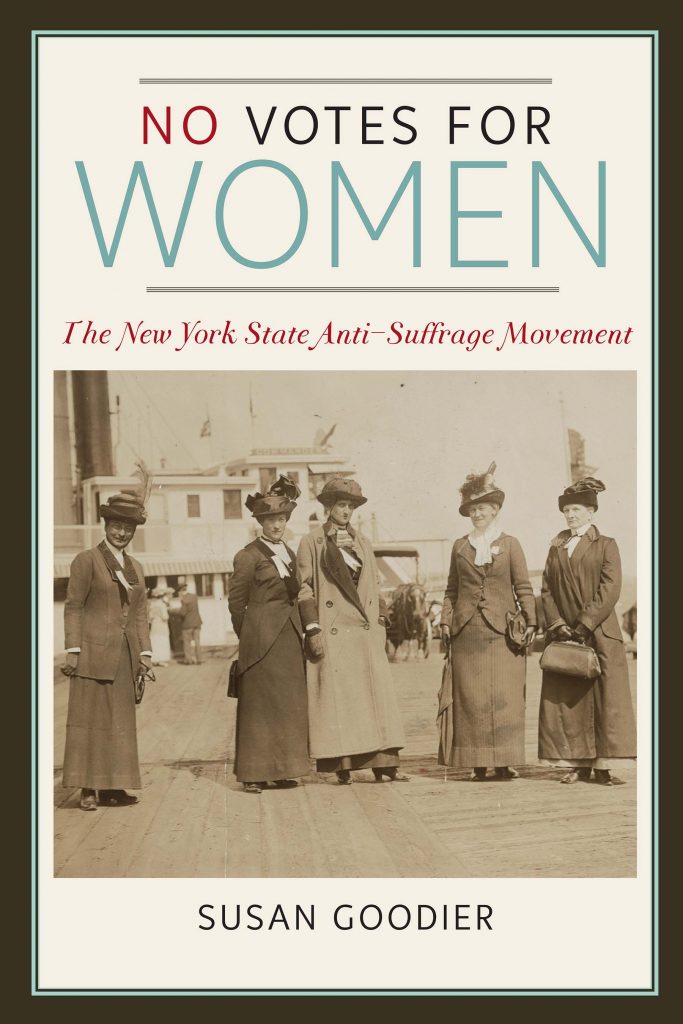
No Votes for Women: The New York State Anti-Suffrage Movement
by Susan Goodier
No Votes for Women: The New York State Anti-Suffrage Movement explores the suffrage movement in New York State by delving into the stories of women who opposed the expansion of voting rights to women. The conservative women who fought against suffrage encouraged women to retain their distinctive feminine identities as protectors of their homes and families, a role they felt was threatened by the imposition of masculine political responsibilities.
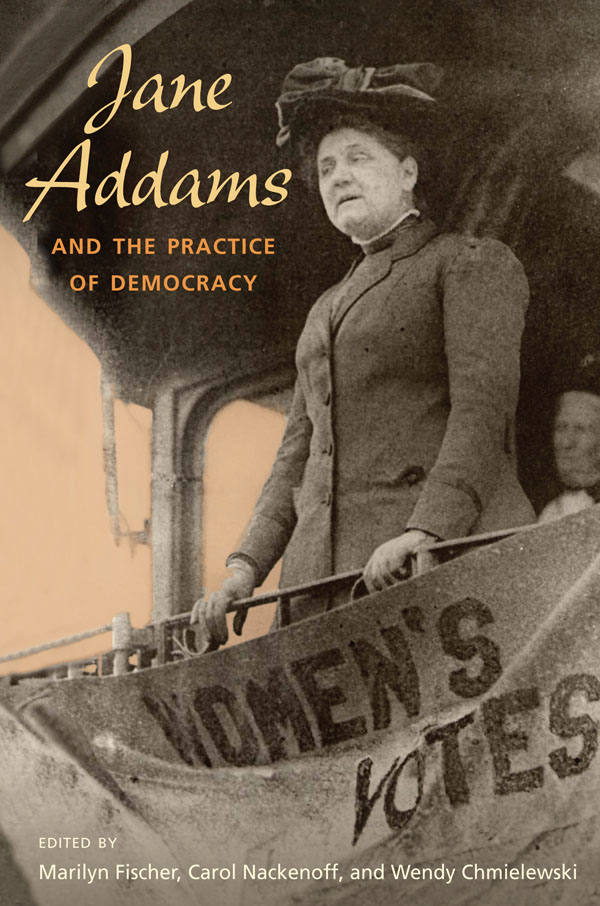
Jane Addams and the Practice of Democracy
Edited by Marilyn Fischer, Carol Nackenoff, and Wendy Chmielewski
Using a rich array of newly available sources and contemporary methodologies from many disciplines, the ten original essays in this volume give a fresh appraisal of Addams as a theorist and practitioner of democracy. This volume demonstrates how scholars continue to interpret Addams as a model for transcending disciplinary boundaries, generating theory out of concrete experience, and keeping theory and practice in close and fruitful dialogue.
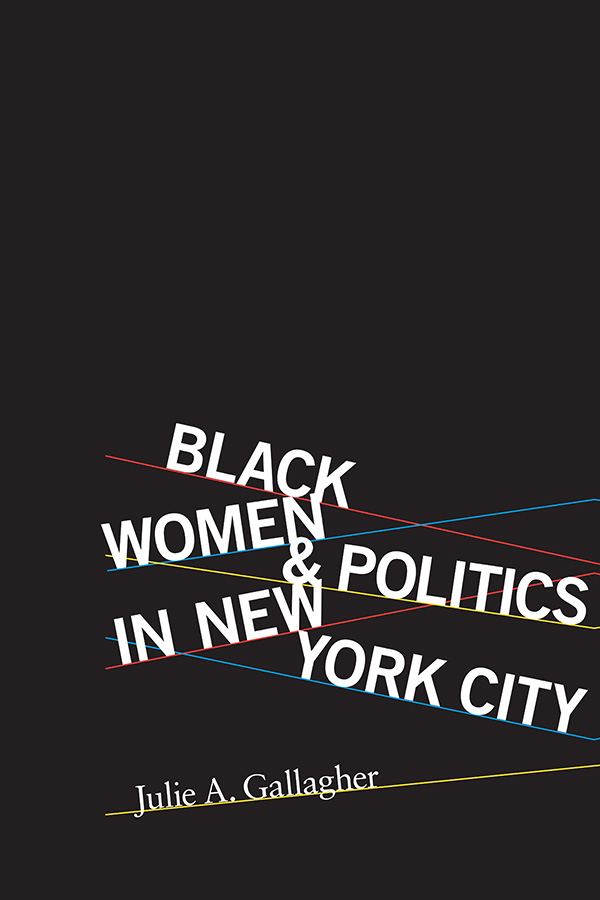
Black Women and Politics in New York City
by Julie A. Gallagher
An essential contribution to twentieth-century political history, Black Women and Politics in New York City documents African American women in New York City fighting for justice, civil rights, and equality in the turbulent world of formal politics from the suffrage and women’s rights movements to the feminist era of the 1970s.
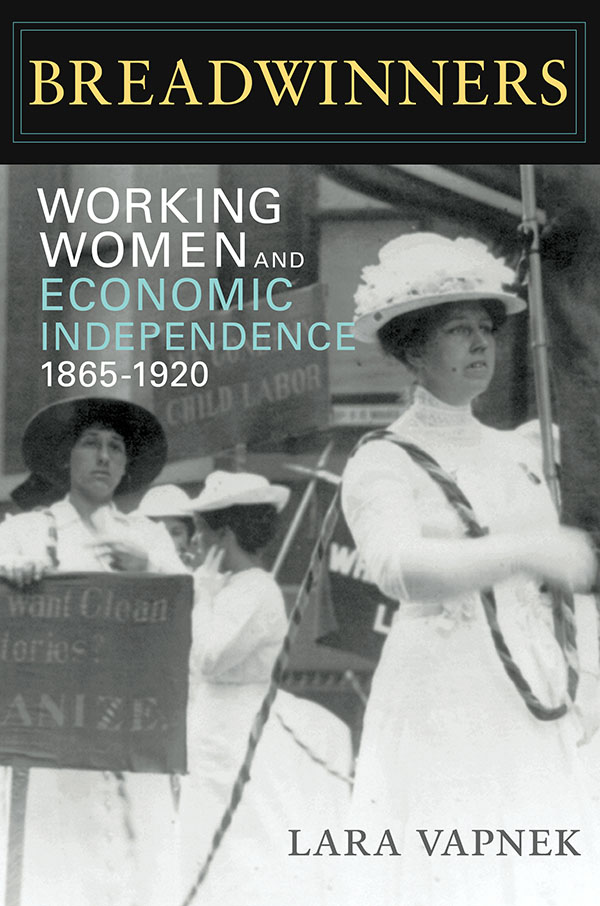
Breadwinners: Working Women and Economic Independence, 1865-1920
by Lara Vapnek
Lara Vapnek tells the story of American labor feminism from the end of the Civil War through the winning of woman suffrage. During this period, working women in the nation’s industrializing cities launched a series of campaigns to gain economic equality and political power. This book shows how working women pursued equality by claiming new identities as citizens and as breadwinners.
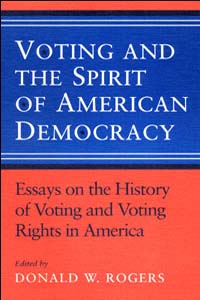
Edited by Donald W. Rogers
Writing in a succinct and lively manner, leading historians and political scientists trace the history of American voting from the colonial period to the present, incorporating the latest scholarship on suffrage reform, woman suffrage, black voting rights, and electoral participation. They explain how voting practices changed over time as the result of broad historical forces, such as economic growth, demographic shifts, the results of war, and the rise of political reform movements.
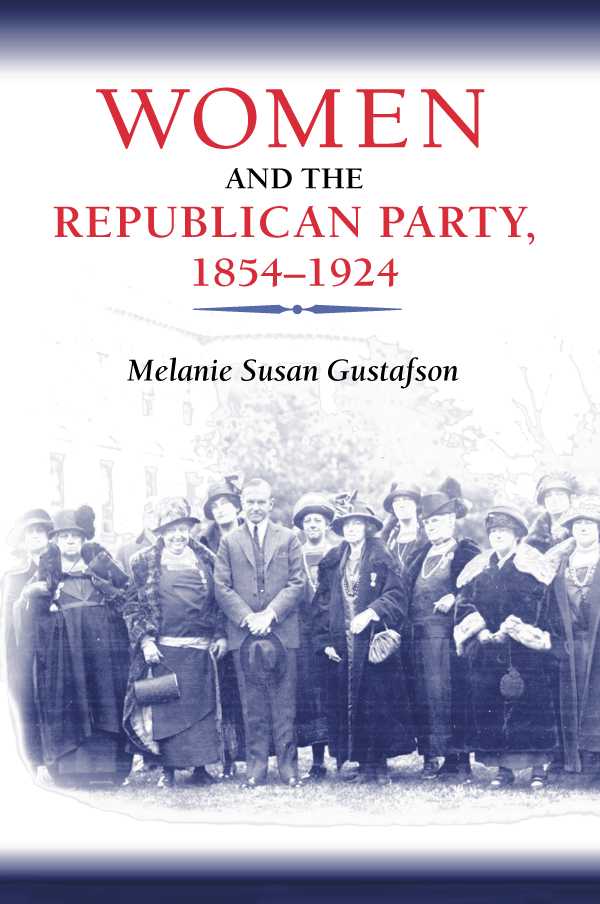
Women and the Republican Party, 1854-1924
by Melanie Susan Gustafson
Acclaimed as groundbreaking since its publication, Women and the Republican Party, 1854-1924 explores the forces that propelled women to partisan activism in an era of widespread disfranchisement and provides a new perspective on how women fashioned their political strategies and identities before and after 1920.
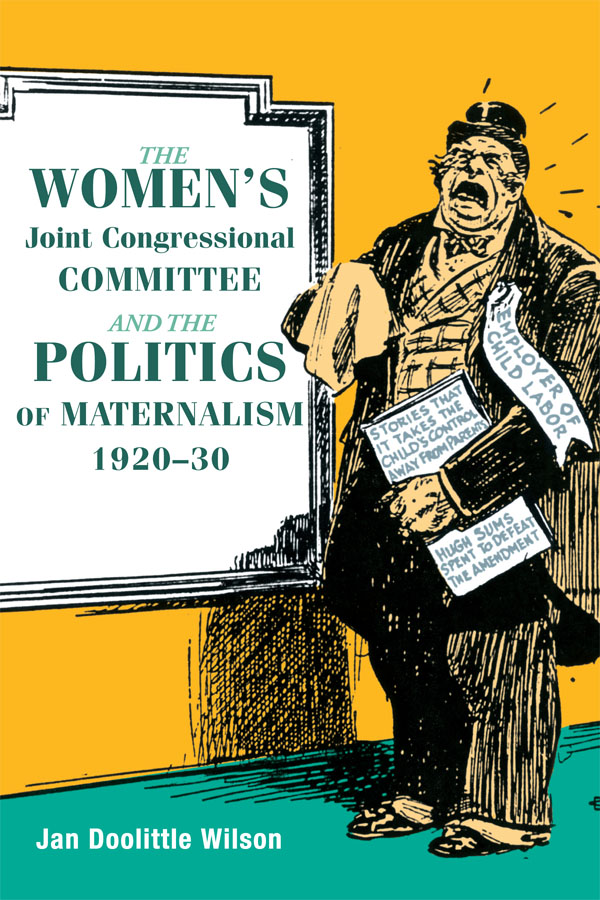
The Women’s Joint Congressional Committee and the Politics of Maternalism, 1920-30
by Jan Doolittle Wilson
Jan Doolittle Wilson offers the first comprehensive history of the umbrella organization founded by former suffrage leaders in order to coordinate activities around women’s reform. Encompassing nearly every major national women’s organization of its time, the Women’s Joint Congressional Committee (WJCC) evolved into a powerful lobbying force for the legislative agendas of more than twelve million women. Critics and supporters alike came to recognize it as “the most powerful lobby in Washington.”
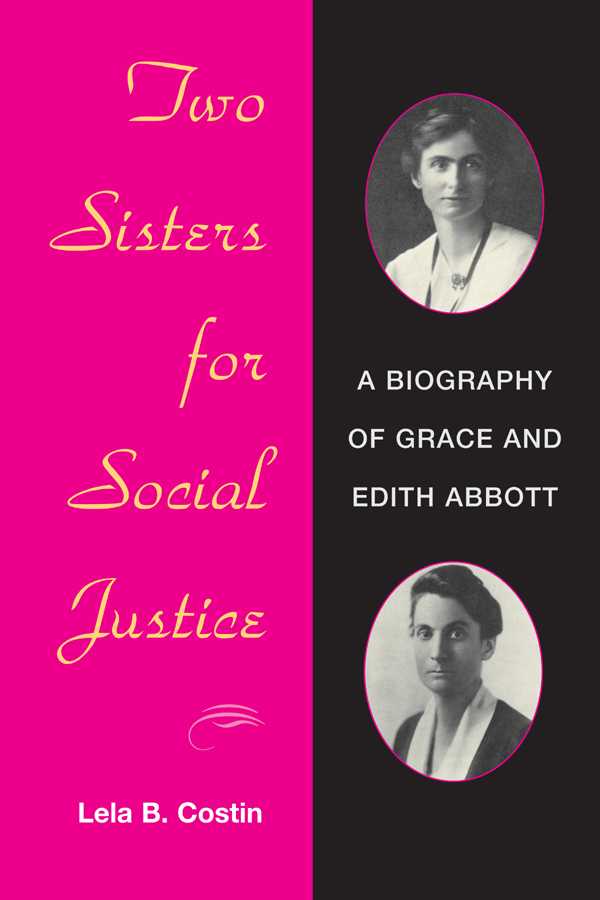
Two Sisters for Social Justice: A Biography of Grace and Edith Abbott
by Lela B. Costin
During the first half of the twentieth century Grace Abbott (1878-1939) and her sister Edith (1876-1957) worked tirelessly to correct many of our nation’s most serious problems. In this vividly detailed and balanced biography, Lela B. Costin has given these two remarkable women their due.
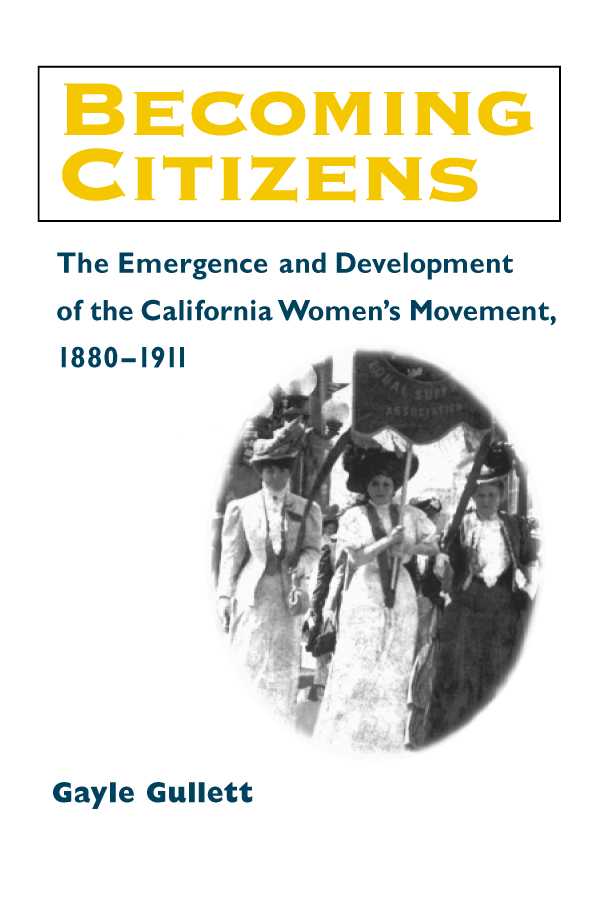
Becoming Citizens: The Emergence and Development of the California Women’s Movement, 1880-1911
by Gayle Gullett
In 1880, Californians believed a woman safeguarded the Republic by maintaining a morally sound home. Scarcely forty years later, women in the state won full-fledged citizenship and voting rights by stepping outside the home to engage in robust activism. Gayle Gullett reveals how this enormous transformation came about and the ways women’s search for a larger public life led to a flourishing women’s movement in California.
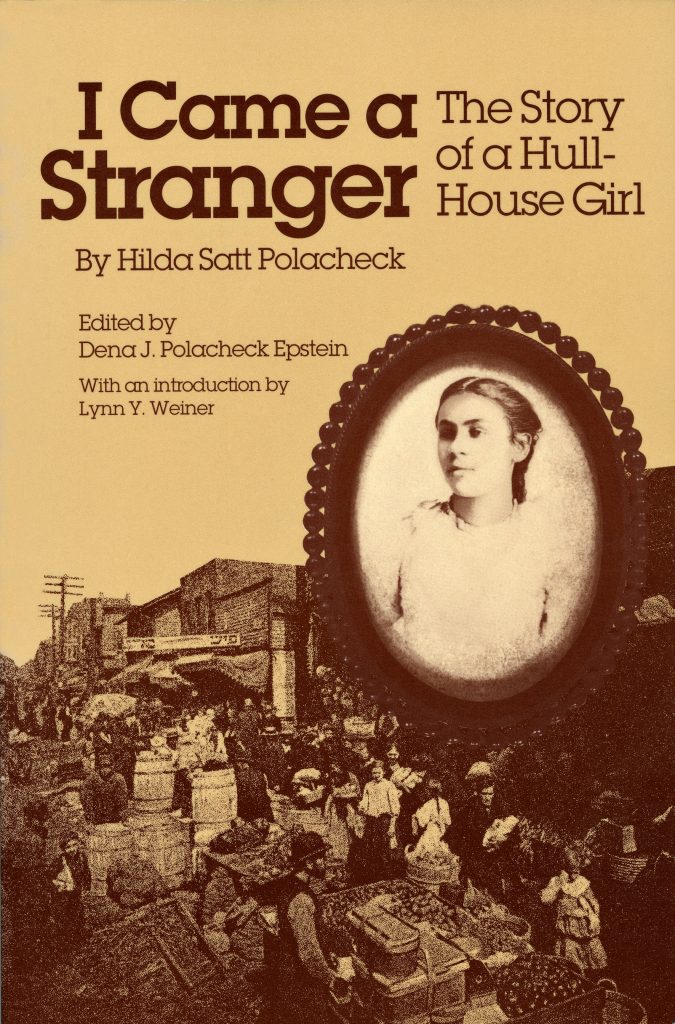
I Came a Stranger: The Story of a Hull-House Girl
by Hilda Satt Polacheck
Hilda Satt Polacheck’s family emigrated from Poland to Chicago in 1892, bringing their old-world Jewish traditions with them into the Industrial Age. Throughout her career as a writer and activist, Polacheck never forgot the immigrant neighborhoods, markets, and scents and sounds of Chicago’s West Side. In charming and colorful prose, Polacheck recounts her introduction to American life and the Hull-House community; her chance meeting with Jane Addams and their subsequent long friendship and working relationship; her marriage; her support of civil rights and women’s suffrage; her work with the Women’s International League for Peace and Freedom; and her experiences as a writer for the Works Progress Administration.
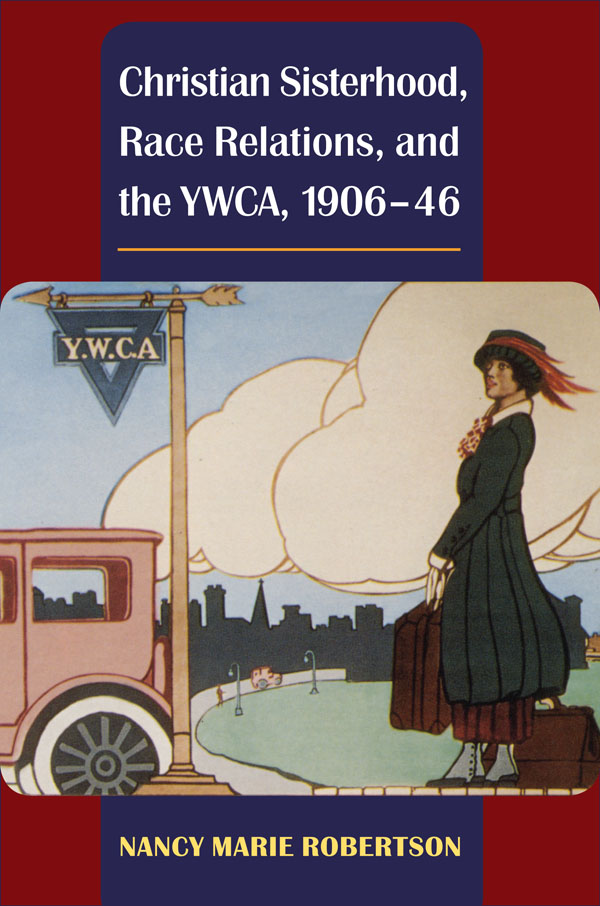
Christian Sisterhood, Race Relations, and the YWCA, 1906-46
by Nancy Marie Robertson
As the major national biracial women’s organization, the Young Women’s Christian Association (YWCA) provided a unique venue for black and white women to respond to American race relations during the first half of the twentieth century. Nancy Marie Robertson analyzes how women of both races employed different understandings of “Christian sisterhood” in their responses.
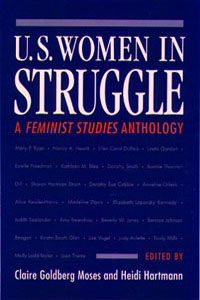
U.S. Women in Struggle: A *Feminist Studies* Anthology
Edited by Claire Goldberg Moses and Heidi Hartmann
This collection of essays from the pioneering journal Feminist Studies focuses on women engaged in struggles of many kinds over the course of United States history. From its inception, Feminist Studies and its contributors have linked scholarship to activism and made major contributions to the development of women’s history. U.S. Women in Struggle gathers a selection of the strongest pieces published in the journal from the mid-1970s to the mid-1990s—a dynamic time in women’s history and activism.
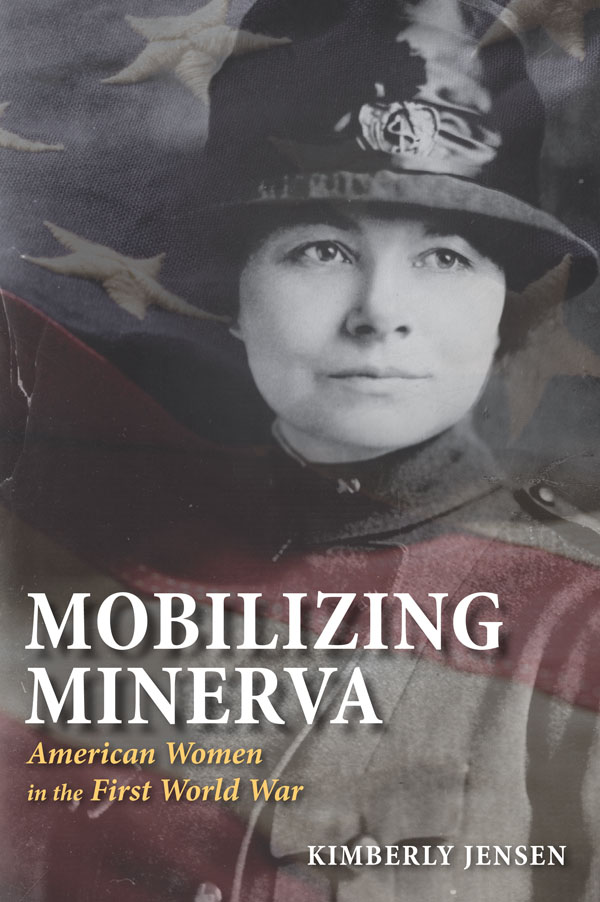
Mobilizing Minerva: American Women in the First World War
by Kimberly Jensen
Mobilizing Minerva: American Women in the First World War analyzes the strategies of female physicians, nurses, and women-at-arms who linked military service with the opportunity to achieve professional and civic goals. Since women armed to defend the state during war could also protect themselves, Kimberly Jensen argues, Americans began to focus on women’s relationship to violence—both its wielding against women and women’s uses of it.
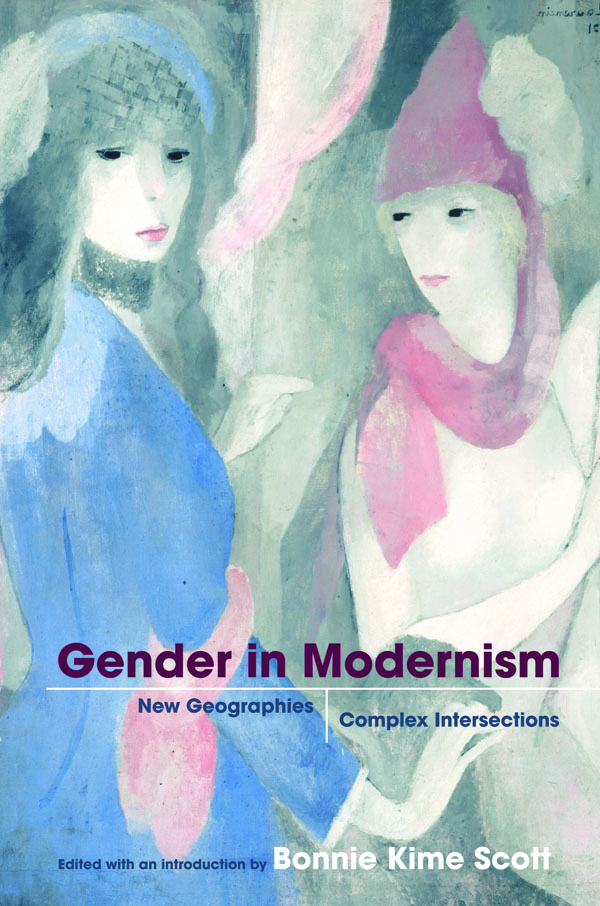
Gender in Modernism: New Geographies, Complex Intersections
Edited and with an Introduction by Bonnie Kime Scott
The modernist works collected in this reader have been grouped into twenty-one thematic sections, with theoretical introductions to the primary texts provided by scholars who have taken the lead in pushing both modernism and gender in new directions. The selections enhance our understanding of the complex intersections of gender with a large array of social identifications, including global location, ideas of race, passing, the queering of sexualities, medicine, and experiences of trauma and war. The volume explores continental modernism and moves on to colonial and postcolonial sites.
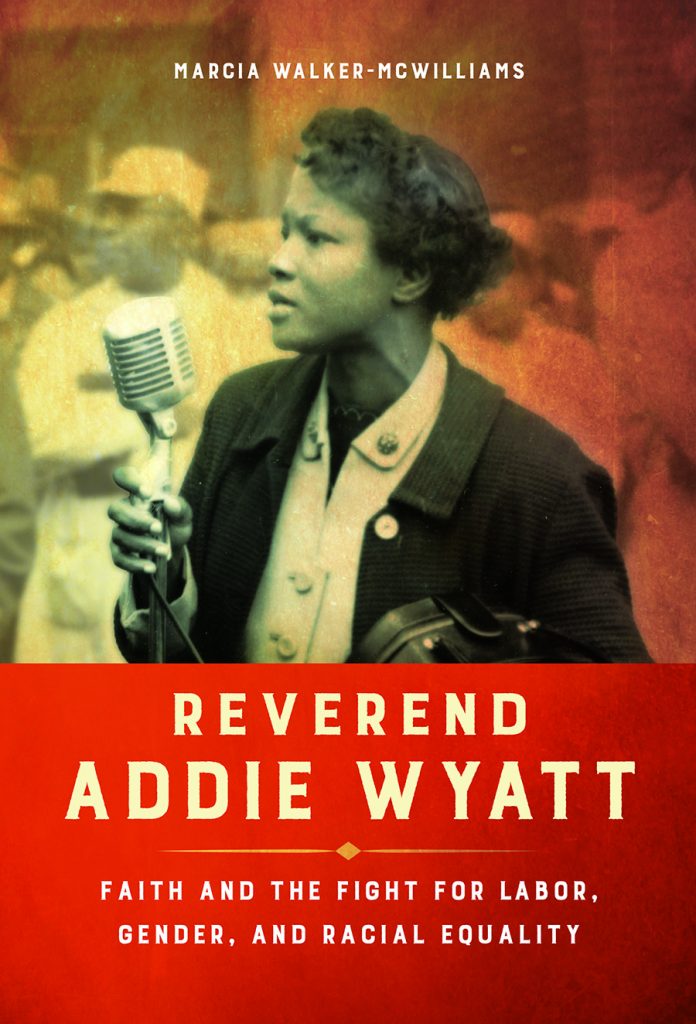
Reverend Addie Wyatt: Faith and the Fight for Labor, Gender, and Racial Equality
by Marcia Walker-McWilliams
Labor leader, civil rights activist, outspoken feminist, African American clergywoman—Reverend Addie Wyatt stood at the confluence of many rivers of change in twentieth-century America. The first female president of a local chapter of the United Packinghouse Workers of America, Wyatt worked alongside Martin Luther King Jr. and Eleanor Roosevelt and appeared as one of Time magazine’s Women of the Year in 1975.

Hillary Clinton in the News: Gender and Authenticity in American Politics
by Shawn J. Parry-Giles
The charge of inauthenticity has trailed Hillary Clinton from the moment she entered the national spotlight and stood in front of television cameras. Hillary Clinton in the News: Gender and Authenticity in American Politics shows how the U.S. media created their own news frames of Clinton’s political authenticity and image-making, from her participation in Bill Clinton’s 1992 presidential campaign through her own 2008 presidential bid.
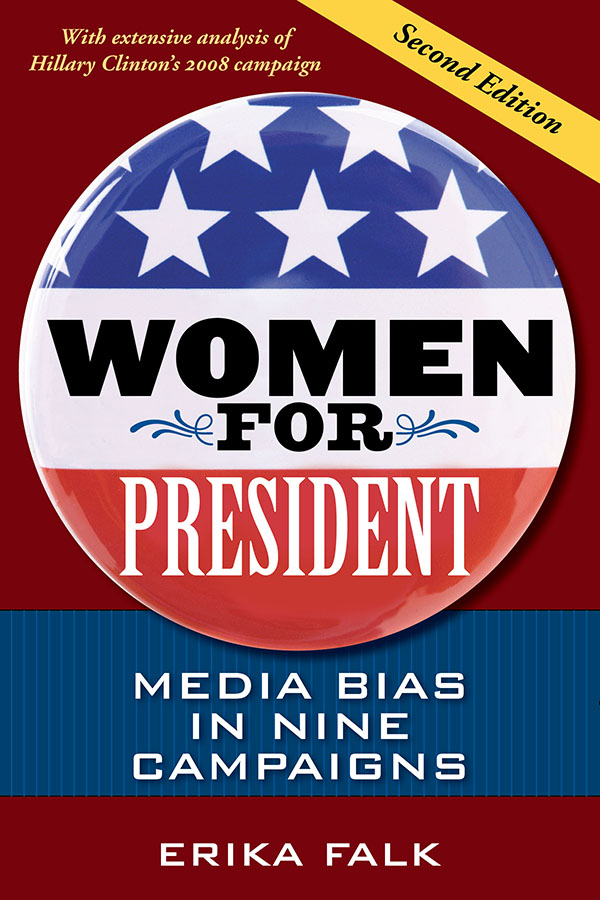
Women for President: Media Bias in Nine Campaigns
by Erika Falk
Newly updated to examine Hillary Clinton’s formidable 2008 presidential campaign, Women for President analyzes the gender bias the media has demonstrated in covering women candidates since the first woman ran for America’s highest office in 1872. Tracing the campaigns of nine women who ran for president through 2008—Victoria Woodhull, Belva Lockwood, Margaret Chase Smith, Shirley Chisholm, Patricia Schroeder, Lenora Fulani, Elizabeth Dole, Carol Moseley Braun, and Hillary Clinton—Erika Falk finds little progress in the fair treatment of women candidates. This thorough comparison of men’s and women’s campaigns reveals a worrisome trend of sexism in press coverage—a trend that still persists today.
